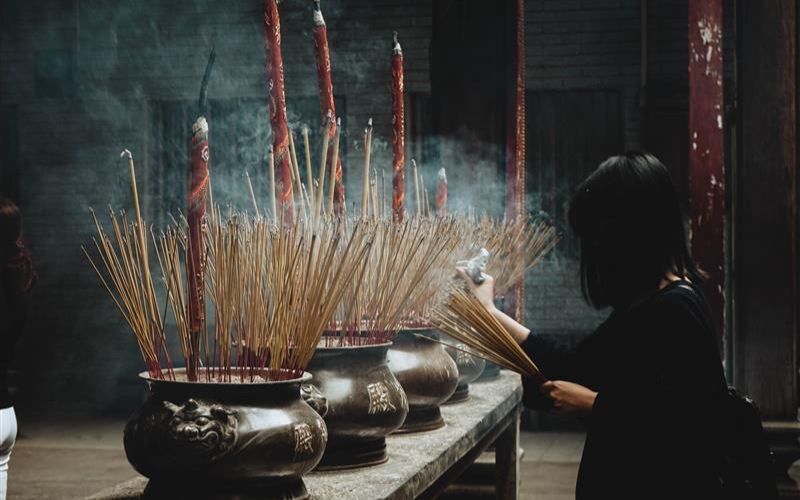Indira Gandhi’s Father on Power, Privilege, and Kindness: Letters to His 10-Year-Old Daughter
by Maria Popova
Notes on the moral foundations of becoming a great leader and a great human, bittersweet in history’s hindsight.
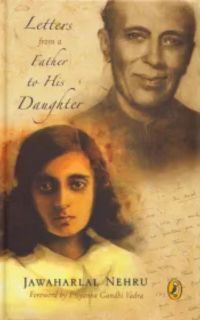
As a hopeless lover of timeless letters, especially ones of sage fatherly and motherly advice, I was thrilled to come across Letters from a Father to His Daughter (public library). In 1928, when his only daughter was ten and spent the summer in the Himalayas while he was in the plains below, Jawaharlal Nehru, leader of India’s struggle for independence from British rule, sent the young girl a series of short letters seeking to explain how the world came to be as it is. That daughter was Indira Gandhi, who would become India’s first and only female Prime Minister, tragically assassinated in 1984.
What makes these letters, which cover everything from the Big Bang to the ancient civilizations to the rise of the division of labor and trade, so spectacular is that Nehru speaks to young Indira both lovingly and with clear respect for her intelligence, treating a ten-year-old child as the future leader she would become. Indeed, we see in these letters the foundation of that becoming — a foundation of moral values for peace and justice, respect for those different from us, and immeasurable, indiscriminate kindness, a message rather bittersweet in history’s hindsight, given the context of Gandhi’s political reputation. Above all, Nehru takes great care to show the little girl that power is not a right but a privilege, one that ought to be used wisely and benefit those whom it is designed to protect and serve rather than the selfish interests of those who hold it.
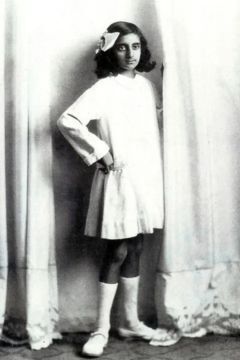
Young Indira Gandhi
In one of the first letters, Nehru reminds his daughter that we need to consistently step outside of our biases and boundaries, be those ones of geography or of culture, in order to fully understand the world:
England is only a little island and India, though a big country, is only a small part of the earth’s surface. If we want to know something about the story of this world of ours we must think of all the countries and all the peoples that have inhabited it, and not merely of one little country where we may have been born.
In a letter exploring the origin of different races, Nehru dispels the irrational beliefs that lie at the heart of racism by telling Indira the story of how early humans migrated across the earth and developed into different races based on the conditions of the lands they lived in:
We find that people’s complexions are the result of the climate they live in. They have nothing to do with the worthiness or goodness or beauty of a person.
Reflecting on the different complexions of people in different regions of India — fairer in the north where it is cooler and darker in the hotter south — and on the flawed cultural beliefs that associate fairer with better, Nehru adds a disclaimer about privilege:
Of course, it may be that some people, even though they may live in a hot country, do not work in the open and are rich enough to live in big houses and take care of themselves and their complexions. A rich family may live like this for generations and may thus not be affected by the climate very much. But not to work oneself and to live on the work of others is nothing to be proud of.
In another letter, he addresses the conceits of nationalism and the perils of stereotyping in equally simple yet poignant terms:
You will also see that most of us now living in different countries far from each other long ago were one people. We have changed greatly since then and many of us have forgotten our old relationships. In every country people imagine that they are the best and the cleverest and the others are not as good as they are. … This is all conceit. Everybody wants to think well of himself and his country. But really there is no person who has not got some good in him and some bad. And in the same way there is no country which is not partly good and partly bad. We must take the good wherever we find it and try to remove the bad wherever it may be.
He adds a prescient note on India’s own geopolitical destiny — a country that, nearly a century after Nehru’s letters, is emerging as a global force of innovation:
If we find anything good in other countries, we should certainly take it.
As Indians we have to live in India and work for India. But we must not forget the world and the people living in other countries are after all our cousins. It would be such an excellent thing if all the people in the world were happy and contented. We have therefore to try to make the whole world a happier place to live in.
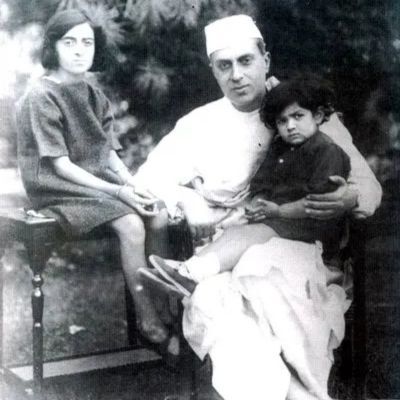
Jawaharlal Nehru with young Indira and niece Chanderlekha Pandit, 1925. (Image courtesy of JMMI, New Delhi)
In a letter exploring the origin and social purpose of religion, Nehru explores the inner contradictions of religion, which haunt us to this day:
This seems horrible but a man who is afraid will do anything.
This must have been the beginnings of religion. So religion first came as fear, and anything that is done because of fear is bad. Religion, as you know, tells us many beautiful things. When you grow up, you will read about the religions of the world and of the good things and the bad things that have been done in their name. . . . We see even today that people fight and break each other’s heads in the name of religion. And for many people it is still something to be afraid of. They spend their time trying to please some imaginary beings by making presents in temples and even sacrifices of animals.
In a letter on the origin of agriculture, which created a surplus of food beyond a tribe’s daily needs, Nehru ties this development to the invention of money and questions the warped dynamics of surplus:
If you think about it, you will see that this money is all surplus, that is people do not want to spend it all at one time and so they keep it in banks. The rich people today are those who have plenty of this surplus, the poor have none at all. … It is not so much because one person works more than another, but nowadays a person who does not work at all gets the surplus, while the hard worker often gets no part of it! This seems a very silly arrangement. Many people think that it is because of this stupid arrangement that there are so many poor people of the world.
In a related letter on the origin of the rich-poor divide, Nehru traces the rise of the patriarch — “the time when complications first began” — and how power structures developed, speaking with timeless prescience to present predicaments ranging from the everyday expressions of entitlement of the privileged in society to the large-scale issues that precipitated the Occupy movement:
Everything in [the early] days belonged to the whole tribe and not to each member separately. Even the patriarch had nothing special to himself. As a member of the tribe, he could only have a share like any other member. But he was the organizer and he was supposed to look after the goods and property of the tribe. As his power increased, he began to think that these goods and property were really his own and not the tribe’s. Or rather he thought that he himself, being the leader of the tribe, represented the tribe. So we see how the idea of owning things for oneself began.
[…]
But as soon as the patriarch started grabbing at the things belonging to the tribe and calling them his own, we begin to get rich people and poor people.
In the next letter, Nehru traces how patriarchs swelled into kings, once again presaging with tragic foresight the state of politics and politicians today:
When the patriarch’s office became hereditary, that is son succeeded father, there was little difference between him and a king. He developed into a king and the king got the strange notion that everything in the country belonged to him. He thought he was the country. … Kings forgot that they were really chosen by the people in order to organize and distribute the food and other things of the country among the people. They forgot that they were chosen because they were supposed to be the cleverest and the most experienced persons in the tribe or country. They imagined that they were masters and all the other people in the country were their servants. As a matter of fact, they were servants of the country.
Later on … kings became so conceited that they thought that people had nothing to do with choosing them. It was God himself, they said, that had made them kings. They called this the “divine right of kings.” For long years, they misbehaved like this and lived in great pomp and luxury while their people starved.
But Nehru reminds young Indira that even in republics, which have democratically elected officials rather than hereditary kings, things are bound to go awry once the entitlement of power poisons a ruler’s soul. He offers an example from India, a country — and by far not the only one — plagued by enormous political corruption to this day:
In India, we have still many rajas and maharajas and nawabs. You see them going about with fine clothes, in expensive motor cars and spending a lot of money on themselves. Where do they get all this money from? They get it in taxes from the people. The taxes are given so that the money may be used to help all the people in the country — by making schools and hospitals and libraries and museums and good roads and many other things for the good of the people. But our rajas and maharajas still think as the French king did of old L’etat c’est moi — “the state, it is I.” And they spend the money of the people on their own pleasures. While they live in luxury, their people, who work hard and give them the money, starve and their children have no schools to go to.
In another letter, Nehru traces the origin of trade and offers an observation on the downside of globalization that presciently speaks to today’s tendency to increasingly celebrate and prioritize locally made goods as a token of more conscious consumer choices:
Consider a piece of foreign cloth that is sold in the bazaar here. The cotton grew in India and it was sent to England. A great factory took it and cleaned it and made it into yarn or cotton thread and then into cloth. This cloth then came back again to India and was sold in the bazaar. How many thousands of miles it traveled backwards and forwards before it was offered for sale! It seems rather silly that the cotton that is grown in India had to go all the way to England to be made into cloth and then come back again. This seems such a waste of money and energy.
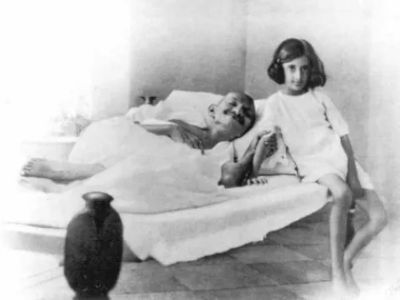
Mahatma Gandhi fasting in 1924, with the young Indira dressed in a khaddar garment shortly after Gandhi began advocating that khaddar be worn by all Indians instead of British-made textiles.
Once again, we see how young Indira’s father instilled in her from an early age the personal and political beliefs that would come to shape her. He writes:
You know that we do not buy or wear foreign cloth. We wear khaddar because it is more sensible to buy things, as far as we can, made in our own country. We also buy and wear khaddar because in this way we help the poor who spin and weave.
In one of the final letters, he returns to the question of money with a sentiment reminiscent of Alan Watts’s philosophy, reminding Indira that money in and of itself is meaningless:
We must remember that money is no good by itself. It only helps us to get other things that we want. It helps us to exchange goods. . . . Some foolish people imagine that money itself is a good and they collect and hoard it, instead of using it. This shows that they do not know how money came to be used and what it really is.
In one of the best letters, considering the question of what civilization is, Nehru pulls into question the power dynamics of our culture and the flawed baseline assumptions underlying them:
How can we find out if a person or a society is barbarous or civilized? Many people in Europe think that they are very civilized and the people of Asia are quite barbarous. Is this because the people of Europe put on more clothes than the peoples of Asia and Africa? But clothes depend on the climate. In a cold climate men put on more clothes than in a hot climate. Or is it because a man with a gun is stronger than the man without a weapon and is therefore more civilized than him? Whether he is more civilized or not, the man who is weak dare not tell him that he is not or else he might get shot!
Writing shortly after WWI, Nehru relates this issue of civilization vs. barbarism to the concept of war, posing a rhetorical question that rings equally, if not even more, true today:
Do you think it was a very civilized or sensible thing for people to kill each other like this? If two men fight in the streets the policeman separates them and everybody thinks how silly they are. But how much sillier and more foolish it is for great countries to fight each other and kill thousands and millions. It is just like two savages fighting in the jungles. And if the savages are called barbarous, how much more barbarous are the countries that behave in that way?
Ultimately, he tells his daughter that civilization is not a matter of external material evidence but of internal spiritual disposition:
Fine buildings, fine pictures and books and everything that is beautiful are certainly signs of civilization. But an even better sign is a fine man who is unselfish and works with others for the good of all. To work together is better than to work singly, and to work together for the common good is best of all.
Letters from a Father to His Daughter is at once enormously heartening and a vital reminder for readers of all ages and eras about how we shape the world we live in through our understanding of it and the choices we make in it.
Thanks, Saneel
See article from source:

